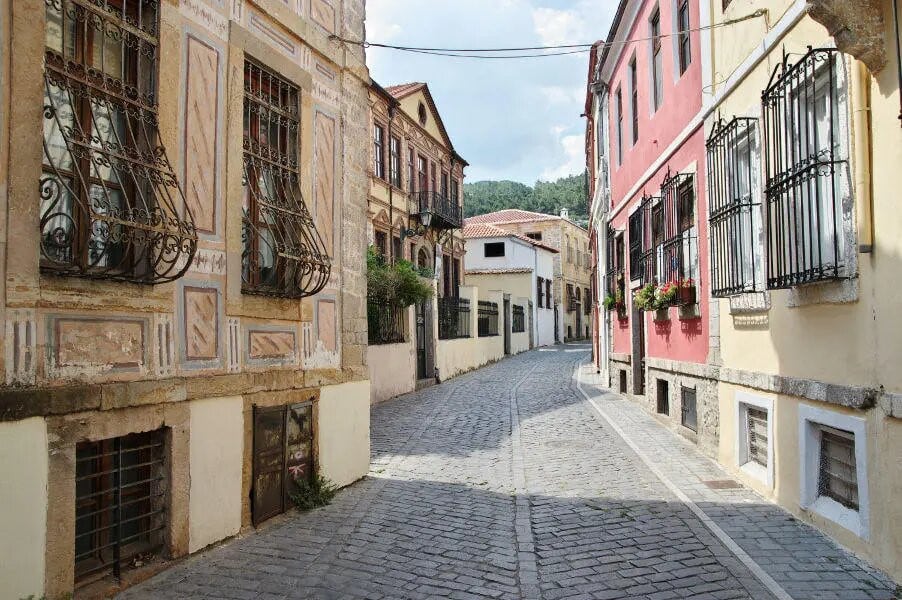Xanthi, along with the rest of Thrace, was taken over by the Ottomans in 1375. The habitation of the region by Muslims and the Islamization of the mountain villages began at the end of the 14th century. The region began to develop in the 17th century and flourished in the 18th and 19th centuries with the organized production of tobacco. It was known then as Little Paris because of the wealth it enjoyed in that era.
Two successive earthquakes in 1829 flattened the town and the villages of the region, but the Old Town was rebuilt, maintaining a large part of its older town plan. Today it is one of the largest traditional settlements in Greece.
During the First Balkan War in 1912, Xanthi was taken over by Bulgarian forces and was only liberated in 1919 after the defeat of the Central Powers in 1918. In WWII, the Germans invaded the city on 8 April 1941 and handed it over to the Bulgarians, who inflicted great violence on the population. It was liberated in 1944.
Gastronomy
The gastronomy of an area tends to mirror its cultural identity. Xanthi is no exception to the rule as local gastronomy showcases the existing cultural mosaic. Greeks, Muslims, Pomaks, Romani, Armenians, Pontic Greeks, Cappadocians, have all added greatly to the rich gastronomic tradition of the area.
The district’s produce includes fruit, vegetables, potatoes, legumes, asparaguses, mushrooms and recently truffles. Livestock farming and dairy produced in the mountainous areas are very important to the district’s economy. Other activities include poultry farming, freshwater fishing (river trout), saltwater fishing in the Thracian Sea or fish farming in Porto Lagos.
Local gastronomy is a mixture of flavours and aromas originating from Minor Asia and the Balkans. Taste the local roasted chick peas, fresh fish, kebab, chickpeas with pumpkin and spices, lamb meat with hilopites, also called gioufkades, savoury pita such as pastourmadopita (made with seasoned and cured beef meat), prasokreatopita (a meat and leek pita which is customary to eat on New Year’s Day).
Another local delicacy is kavourma which is seasoned meat –usually veal, buffalo, sheep or goat- slowly cooked with spices (allspice, cinnamon, clove, and nutmeg) in fat, a type of confit. The process of curing the meat -in older times- used to be the best and only way to preserve it for long periods of time. Other palatable dishes for you to try would be tsigerosarmades (lamb entrails with herbs and spices), pork or chicken with pickled cabbage, chicken with couscous, lahanodolmades, sausage and pulse soups.




